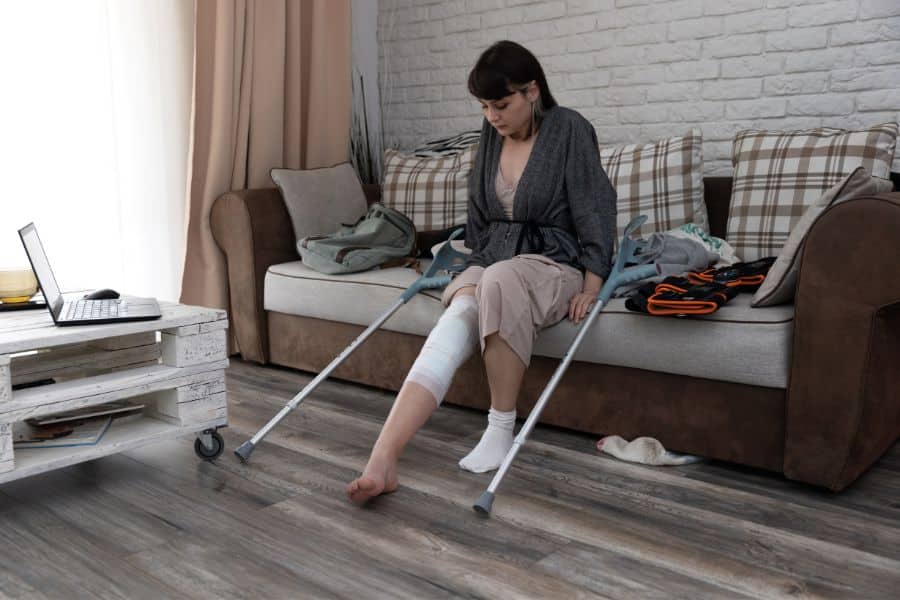Is Surgery Necessary?

While there are specific circumstances where surgery is the only way to treat an injury or condition, a more conservative, less expensive, and less risky option to try is physical therapy.
First, let’s talk about MRI findings. Many people think that if an MRI shows a bulging disc or rotator cuff tear, for example, then their only option for healing is surgery. However, there are numerous research studies that show that people without any pain (asymptomatic) have abnormal MRI findings.
For example, one study found that 52% of asymptomatic individuals showed a bulging disc in their lumbar spine on MRI, and 27% had a disc herniation. What this shows us is that it is possible to have disc bulge or herniation in the low back and not have any problems or limitations at all. Why does this matter? People who develop low back pain from a muscle strain or other injury may have already had an asymptomatic disc anomaly in their back, and the MRI finding of a disc bulge could be coincidental and not reveal the true cause of their back pain. If that patient elects to have surgery to fix the bulging disc, they may come out of surgery with no change in their pain at all, in addition to having exposed themselves to other risks associated with surgery.
There are other studies that show that 65.3% of rotator cuff tears (muscles in the shoulder) are in asymptomatic individuals. A patient that develops shoulder pain and has an MRI may find an old rotator cuff tear, but surgery to correct that issue may not actually fix their pain.
These studies point to the need for a thorough physical therapy evaluation to ensure that MRI findings are matching up with the patient’s clinical presentation and actual symptoms. Physical therapists are trained to be able to test and assess muscles and joints for reproduction of the patient’s familiar pain and/or weakness. For example: a skilled physical therapist may determine that a patient complaining of shoulder pain, with an old rotator cuff tear showing on an MRI, is actually dealing with problems stemming from the cervical spine (neck).
Even in cases where MRI findings do correlate with the patient’s pain and symptoms, research still shows that physical therapy can be extremely effective at treating conditions such as spinal stenosis, disc herniations, rotator cuff tears, and meniscus tears, for example. Your body is designed to heal itself, and physical therapy is a great way to come alongside your body and assist in the healing and recovery process.
Additionally, physical therapy costs much less than surgery and carries with it significantly less risk than surgery. Surgery can lead to infection, nerve damage, side effects of anesthesia, deep vein thrombosis (blood clots), and excessive bleeding. The most common side effects of physical therapy are muscle soreness, fatigue, mild joint soreness/stiffness, possible bruising from certain manual therapy interventions, and sometimes increased pain or swelling. The benefit of physical therapy is that your physical therapist can monitor your response and adapt treatment as needed to minimize side effects.
During the initial evaluation and throughout treatment, doctors of physical therapy can screen for more serious or emergency situations and will refer to a different practitioner when necessary. If you experience no response to conservative care, or worsening of symptoms with physical therapy, then surgery may be indicated and your physical therapist will refer you to a more appropriate healthcare provider at that time. But more often than not, patients are surprised by how much better their pain and dysfunctions improve with physical therapy, even in cases of known muscle or joint injuries.
So here’s a friendly reminder: don’t rush to go under the knife unless you’ve exhausted other treatment options! Call us today to see if physical therapy is right for you.
Sources:
Etal, J. M. C. (1994). Magnetic Resonance Imaging of the Lumbar Spine in People Without Back Pain. The Nurse Practitioner, 19(9), 19. https://doi.org/10.1097/00006205-199409000-00004
Minagawa, H., Yamamoto, N., Abe, H., Fukuda, M., Seki, N., Kikuchi, K., Kijima, H., & Itoi, E. (2013). Prevalence of symptomatic and asymptomatic rotator cuff tears in the general population: From mass-screening in one village. Journal of Orthopaedics, 10(1), 8–12. https://doi.org/10.1016/j.jor.2013.01.008
Ainsworth, R., & Lewis, J. S. (2007). Exercise therapy for the conservative management of full thickness tears of the rotator cuff: a systematic review.British Journal of Sports Medicine,41(4), 200–210.https://doi.org/10.1136/bjsm.2006.032524
